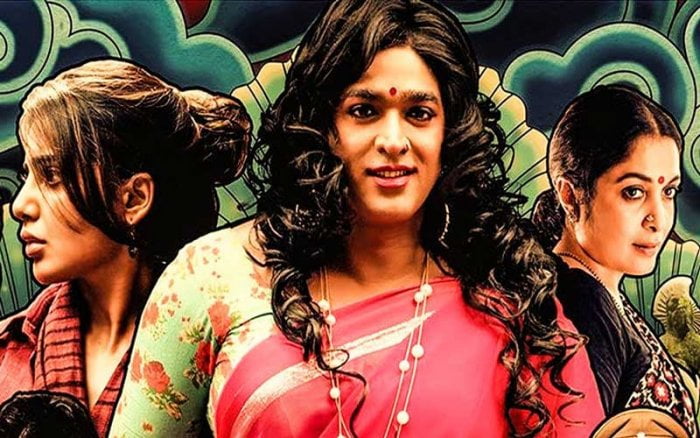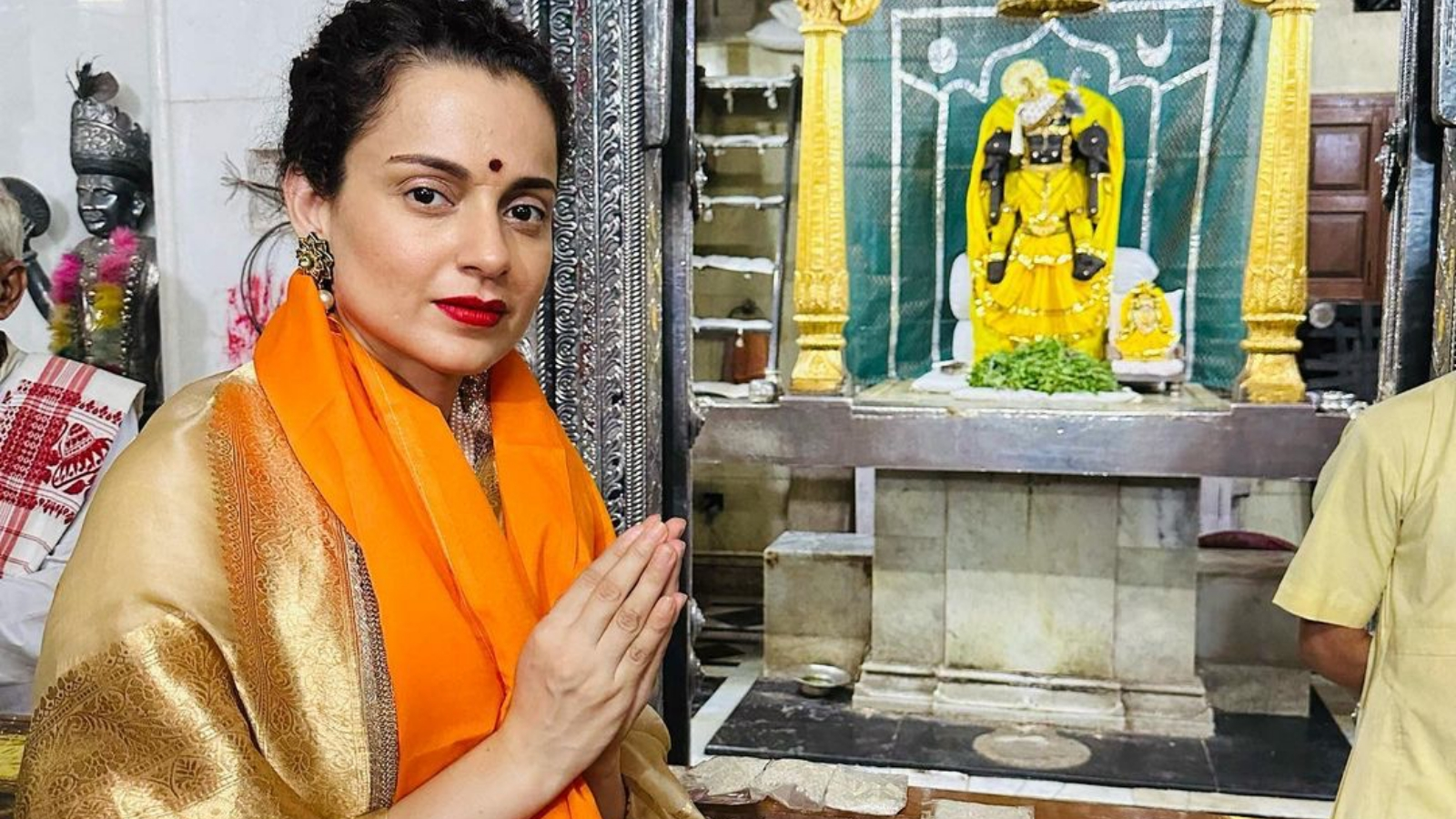Vijay Sethupathi bagged the award for the Best supporting actor Tamil in the 67th National awards for his role as Shilpa in the film Super Deluxe (2019). Though the announcement was delayed by a year due to the Covid situation, this award to Vijay Sethupathi was not surprising as it was expected since the release of the film. The actor has been receiving laurels for having been able to pull off a trans woman’s role. Of course, a cis male actor’s ‘courage’ to play a trans role mustn’t go unappreciated, right?
In an interview after the announcement of the awards, Sethupathi said, “I hope this National Award will encourage more people to watch Super Deluxe. The more people see it, the more the awareness of women like Shilpa trapped in men’s bodies.” What he said is kind of presumptuous especially considering the fact that the transgender community has condemned the film from the very beginning.
Super Deluxe in a non-linear fashion deals with four unconventional story-lines and one of them deals with Shilpa, a trans woman returning home after seven years and trying to reunite with her family – her parents, wife, and son whom she had left behind.
Kalki Subramaniam, a transgender activist, remarked that the role of Shilpa is poorly researched and Shilpa identifying herself as a woman after having a child with a woman was far from reality.
A section of transgender community was worried that Shilpa’s character projected wrong ideas about the community that would lead to further marginalisation and oppression. Kalki Subramaniam, a transgender activist, remarked that the role of Shilpa is poorly researched and Shilpa identifying herself as a woman after having a child with a woman was far from reality. Further, Shilpa’s character being involved in a child trafficking incident was feared to add more to the existing prejudice and transphobia thereby reinforcing the notion that trans people are unemployable.
Sudha, a member of the Transgender Welfare Board, adds, “Even an openly villainous role could have been etched rather than linking transgenders to issues that they have never been associated with before. The number of problems like finding a house to rent, etc., only grow with such depictions.”
In its carelessness and irresponsibility, the film manages to lose the value of one of the most substantial portrayals of trans women. Shilpa is not a stock, two-dimensional character that can be easily dismissed. There’s a complexity that she brings to the screen which is quite unusual in Tamil cinema. And what is even more unusual is that Shilpa gets to have a happy ending!
Also read: Pati Patni Aur ‘Panga’? Nope, It Is Called Trans Negativity!
Shilpa’s story in the film begins with her family waiting for her arrival unaware of her transformation. While her parents, wife and other relatives are shocked to see Shilpa in place of Manickam who they had expected to land like a ‘ferocious lion’, her son, Raasu Kutty, readily accepts her and showers her with love. The questions that the six year old Raasu kutty fires at Shilpa, “Are you a girl or boy?“, “Who changed you this way?“, “Why weren’t you born as a woman to begin with?“, “Which bathroom are you supposed to use? Men’s or women’s?“, “Will you be able to breastfeed a child?” – for which she provides answers in a way a child could understand cover a lot of fundamental aspects about the lives of trans people. Their conversation, though light hearted, is written with an intention to educate a prejudiced ignorant public.
There’s a clear distinction between how Shilpa is seen by Raasu kutty and the world. And it is through Raasu Kutty’s eyes that the audience are made to see Shilpa. Raasu Kutty’s is a subversion of the societal gaze. Trans women’s way of begging which is seen as an act of shame and often used as a tool for humiliation becomes a matter of great amusement for Raasu Kutty and he applauds Shilpa when she gets money from a shopkeeper. When Raasu kutty’s friends laugh at Shilpa’s appearance, Raasu kutty jumps to her defence saying wearing saree is his father’s style of dressing and is bewildered when his friends fail to understand something as simple as that. While others dehumanise Shilpa by referring to her as ‘it’ and the school kids ridicule and humiliate her by using derogatory words, Raasu kutty asks her without any hesitation whether he should start calling her ‘amma’ (mother) as she has become a woman now.
Contrary to the popular and regular custom, Super Deluxe does not seek the aid of grand narratives such as religion and culture to legitimise the identity of transgender people. Mere existence is taken as validation enough. Raasu Kutty calls God a jerk chuckling when Shilpa says God committed a foolish mistake of putting her in a man’s body at birth.
The film also highlights how trans women are subjected to harassment and violence more often than women and how exploitation of trans women’s bodies is normalised by the society.
The film also highlights how trans women are subjected to harassment and violence more often than women and how exploitation of trans women’s bodies is normalised by the society.
Such a depiction of a trans woman character would have been powerful and meaningful if only a trans woman was cast and let to play the role. Cinema being a patriarchal entertainment industry that prioritises male talent predominantly caters to the needs of a male audience. Casting a bankable male star who has a large audience pull in a trans role would indeed turn out be more profitable than casting a trans woman in a trans role. This practice invalidates trans identities and perpetuates inequality.
A cis male actor playing a trans woman role complicates the portrayal of trans characters as it distorts the image of a trans person and promotes misconceptions about trans identities. Little difference can be ascertained between a male actor adopting a female disguise and a male actor playing the role of a trans woman. Jen Richards, a Hollywood trans woman actor says that casting both cis male and cis female actors “reinforces negative ideas and beliefs that trans people do not exist” thereby leading to an erasure of their identities.
When the initial promotional photos of Vijay Sethupathi dressed as Shilpa released, the audience were eager and curious to see whether their favourite star would be able to pull off the look of a trans woman and perform the character well. Whenever a cis male actor plays a trans woman role, it is the aspect of ‘performance’ that gets foregrounded and the role is often seen as a challenge and testament to the acting skills of the actor (Didn’t the actor say that ‘safe roles bore him to death’ and he would constantly look for roles that take him out of his comfort zone in a recent interview!).
Also read: The Curious Case Of Trans* Representation In Media
Pertinent questions like whether a cis male actor would be able to comprehend the ‘trans-ness’ of the character, would he be able to understand all the dimensions of the character and whether it is authentic for him to play a trans role are all sidelined.
When narratives include trans subject matters but exclude real trans people from the screens, it amounts to exploitation of trans lives. By denying visibility and erasing actual trans identities, systemic exclusion of the trans communities is enabled.
It’s only through active inclusion of trans people that the misconceptions and prejudices can be removed. And when screens deny visibility, it adds to the stigma and however sensitive the portrayal of the trans characters is, the audience are denied the understanding of trans lives.
In an interview to The Hindu, Vijay Sethupathi, can be found saying, “She [Shilpa] is a fictional character and he [director Kumararaja] wanted her to be that way. So, it was important for us to define her character traits in the scripting stage itself. In a sense, we were literally creating a character together. To put it in simpler terms, Shilpa wasn’t lifted from the streets and can be found only in Super Deluxe.”
Artistic and creative license doesn’t really hold ground when it comes to the depiction of marginalised community which has never had the privilege of representation let alone it being fair. Sethupathi’s statement of Shilpa, a trans woman character, being nothing but a fictional brainchild of the cis-het male director and actor screams of entitlement, social ignorance, and cultural indifference.
Also read: Film Review: ‘Laxmii’ Is Nightmarish, Triggering And Basically Unwatchable!
An authentic representation of trans community in terms of casting, characterisation and portrayal is of utmost importance in a society which in its doubt and fear towards difference actively engages in perpetuating misconceptions thereby leading to the alienation, isolation and marginalisation of the trans communities.
Featured Image Source: Super Deluxe movie poster




